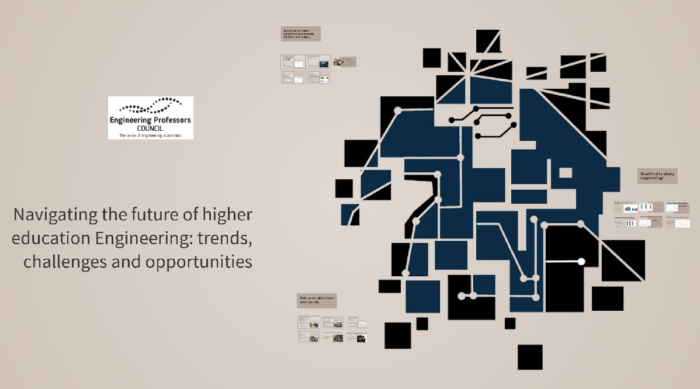We keep you informed about the latest policy changes, news and events through regular email Bulletins, our website and guest blogs, as well as through access to the exclusive members’ area of the EPC website and targeted briefing events. Click through the tabs below to explore some of our blog highlights:
Dr. Matthew Studley, Associate Professor of Technology Ethics at UWE, looks at using case studies from the Engineering Ethics Toolkit to engage students.
Over the last two years, Matthew has been part of the team that created the Engineering Ethics Toolkit for the Engineering Professors Council and the Royal Academy of Engineering.
The toolkit is based around case studies, which let students flex their ethical muscles on problems concerning a variety of applications of technology in different fields, and are structured for delivery with examples of exercises, discussion points, and further reading.
Click here to read more.
Dr. Jude Bramton of the University of Bristol discusses her first-hand experience of using the Engineering Ethics Toolkit and what lessons she learnt.
Jude now feels ”very comfortable, and excited, to be teaching engineering ethics.” and outlined that ”providing specific time on this subject was very beneficial for the students, it gave them time and space to reflect on such a complex topic.”
Jude ”would recommend the resources on the Engineering Ethics Toolkit to anyone. They can be easily adapted to your own contexts and there is a plethora of resources and knowledge that are proven to engage students and get them thinking ethically.”
Click here to read more.
Georgina Smith. In the face of the critical shortage of Physics teachers, some Engineering graduates are pursuing the chance to teach and inspire the next generation. Read Georgina Smith’s journey of becoming a Physics teacher after gaining her Engineering degree.
Each year, there’s a shortfall of engineers entering the sector because there aren’t enough Engineering graduates. And there aren’t enough students taking feeder A levels – particularly Physics. We’ve reached a crisis: many school pupils simply can’t choose Physics because there are no teachers – especially in disadvantaged schools. The solution is for more Engineering graduates to become Physics teachers.
For many, this is not just about opportunities for young people, but also about social justice. Georgina Smith is an example.
Click here to read more.
The findings of Brexit impact on UK’s engineering education sector: Exploring EU students and staff experiences shine a spotlight on the importance of the long history of collaboration and shared purpose with the UK’s direct geographical neighbours to advancing excellence in engineering and engineering research. The research demonstrates that the readiest and most promising opportunities are in preserving and strengthening existing relationships, exploiting geographical proximity, to further research collaborations.
Drawing on surveys, interviews and data analysis, the independent research was conducted to support an evidence-based approach to the recruitment and retention of European talent into UK engineering education, research and practice through understanding the concerns and expectations of European students and academic staff. Find out more here.
You may already know that you can access engineering data using MS Power BI at discipline level on the UCAS website. If not, let me excite you.
You can quickly and easily produce headline tables and charts filtering UCAS applications and acceptances profiles for engineering, drilling down into a host of variables including the cohort’s gender, age and where they are from.
This blog outlines EPC’s engineering focused instructions, coupled with a brief video tutorial to walk you through visually.
Academic accreditation of engineering degrees is a well-established feature of UK higher education. It is seen as a valuable ‘kite mark’ for degree providers operating in a marketized higher education system and confers some benefits for graduates who wish to seek professional registration. However academic accreditation has both costs and benefits.
Read more here.
Drawing on her own thoughts on what made her choose engineering and experiences as a young graduate – Prof Rogers explores just how important good communication skills are when working as an engineer, and what these skills actually consist of. Find out more about this in her
blog here.
Prof Rogers has also distilled her communications knowledge into online courses that she is licensing to universities to assist with the new AHEP4 rules – see more details here.
Former EPC President, Prof Sarah Spurgeon, looks back at the process from her insider perspective as an Engineering sub-panel member and interdisciplinary advisor. Read more here.
EPC Board member and Professorial Teaching Fellow, Mike Bramhall, at The Engineering and Design Institute (TEDI-London) has incorporated three of the EPC’s ethics case studies from our recently produced toolkit into TEDI’s BEng (Hons) in Global Design Engineering. Mike and two of his students, Stuart Tucker and Caelan Vollenhoven, gave a presentation at this year’s EPC Annual Congress about their positive experience teaching and learning with the case studies.
In this blog, Mike reflects on how and why he incorporated these resources – read more here.
The decisions engineers make on a daily basis can have significant consequences for underrepresented and disadvantaged groups in society.
Prof Dawn Bonfield, Visiting Professor of Inclusive Engineering at Aston University, Royal Society Entrepreneur in Residence at King’s College London and a member of the EPC’s Engineering Ethics Advisory Group explains this concept and how we can use the EPC’s RAEng funded Engineering Ethics Toolkit resources to help integrate ethics throughout an engineer’s education and professional development. Read more here.
EPC President Prof. Mike Sutcliffe introduces an ambitious new initiative to ensure engineering education is a force for good: the EPC’s Engineering Ethics toolkit, produced in partnership with the Royal Academy of Engineering. Read more here.




